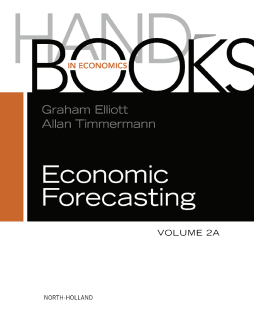
Additional Information
Book Details
Abstract
The highly prized ability to make financial plans with some certainty about the future comes from the core fields of economics. In recent years the availability of more data, analytical tools of greater precision, and ex post studies of business decisions have increased demand for information about economic forecasting. Volumes 2A and 2B, which follows Nobel laureate Clive Granger's Volume 1 (2006), concentrate on two major subjects. Volume 2A covers innovations in methodologies, specifically macroforecasting and forecasting financial variables. Volume 2B investigates commercial applications, with sections on forecasters' objectives and methodologies. Experts provide surveys of a large range of literature scattered across applied and theoretical statistics journals as well as econometrics and empirical economics journals. The Handbook of Economic Forecasting Volumes 2A and 2B provide a unique compilation of chapters giving a coherent overview of forecasting theory and applications in one place and with up-to-date accounts of all major conceptual issues.
- Focuses on innovation in economic forecasting via industry applications
- Presents coherent summaries of subjects in economic forecasting that stretch from methodologies to applications
- Makes details about economic forecasting accessible to scholars in fields outside economics
"Forecasting is one of the most challenging and competitive activities undertaken by economists. Volume 2 of the Handbook of Economic Forecasting and the companion Volume 1 are essential references for keeping abreast of recent improvements in forecasting methodology and its application in demanding circumstances." --John Geweke, University of Technology Sydney, Australia
"This is a highly recommended volume on forecasting that covers a wide-range of applications in economic and financial forecasting, as well as providing comprehensive and up-to-date overviews of forecasting theory by the leading scholars in the field." --Hashem Pesaran, University of Southern California
